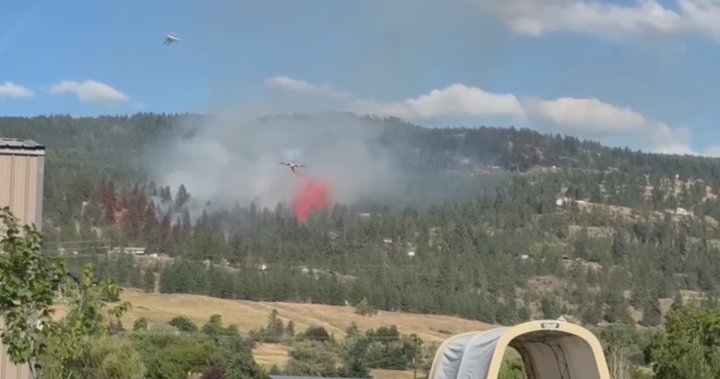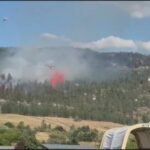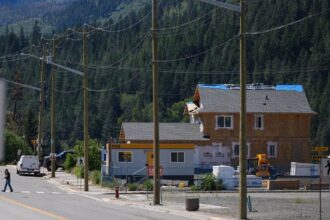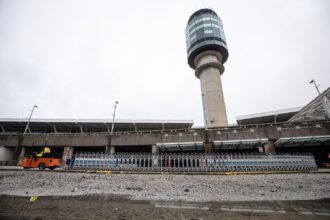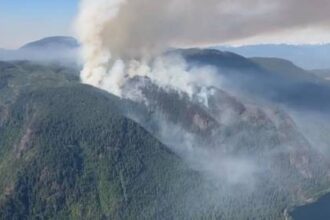Smoke billows over the runway at Kelowna International Airport as anxious travelers crowd the terminal, staring at the departure boards flashing with cancellations. A wildfire raging just kilometers away has thrown thousands of travel plans into chaos, creating a ripple effect felt across Canada’s air transportation network.
“I’ve been here since 5 a.m. trying to get home to Toronto,” says Michelle Leung, clutching her boarding pass for a flight that never departed. “They’re telling us it could be days before operations return to normal.”
The wildfire, which ignited late yesterday afternoon in the hills east of Kelowna, has rapidly expanded to over 400 hectares according to BC Wildfire Service officials. Dense smoke has reduced visibility to dangerous levels, forcing airport authorities to ground all incoming and outgoing flights at YLW, Canada’s 10th busiest airport that typically handles over 2 million passengers annually.
Air Canada, WestJet, and Flair Airlines have collectively cancelled more than 60 flights since the disruption began, affecting an estimated 8,000 passengers. The timing couldn’t be worse—summer tourism season in the Okanagan is at its peak, with hotels reporting 95% occupancy rates across the region.
“This isn’t just an inconvenience, it’s an economic blow,” explains Dale Somerville, CEO of the Kelowna Tourism Association. “Every day the airport remains closed means millions in lost revenue for local businesses that depend on summer visitors.”
Airport officials have established an emergency operations center to coordinate with airlines and accommodate stranded passengers. Several hotels near the airport have offered discounted “distress rates,” but availability is extremely limited given the season.
Beyond passenger flights, the disruption has severely impacted cargo operations. Critical medical supplies destined for Interior Health facilities sit grounded in Vancouver, prompting health authorities to implement contingency plans involving ground transportation from alternate airports.
The wildfire itself, fueled by unusually dry conditions and strong winds, has triggered evacuation alerts for several neighborhoods on Kelowna’s eastern edge. Fire crews from across the province have been deployed, including two water bomber aircraft diverted from other operations.
“We’re fighting this on multiple fronts,” says Fire Chief Jason Brolund. “Our priority is protecting lives and critical infrastructure, including the airport itself, which houses millions in aviation equipment and serves as a crucial hub for the entire region.”
For travelers with insurance, the situation may offer some financial protection. However, many passengers report confusion over their coverage when natural disasters interrupt travel plans.
“My insurance covers missed connections, but they’re saying this qualifies as a ‘force majeure’ event which limits compensation,” explains James Halpert, who was traveling with his family of four to connect to an Alaskan cruise departing from Vancouver.
Weather forecasts offer little immediate relief, with continued high temperatures and low humidity expected over the next 72 hours. Airport officials have advised passengers to contact their airlines directly rather than coming to the terminal, which has limited capacity for overnight stays.
The transportation disruption extends beyond air travel. Highways surrounding Kelowna have seen increased congestion as travelers seek alternative routes out of the region, while bus companies report being completely booked through the weekend.
Will this incident prompt changes to wildfire preparation strategies around critical transportation infrastructure? As climate change increases the frequency and intensity of wildfires in British Columbia, transportation officials may need to develop more robust contingency plans to keep people moving during increasingly common natural disasters.
For the latest updates on the Kelowna airport situation and other breaking transportation news, visit our CO24 Breaking News section.

